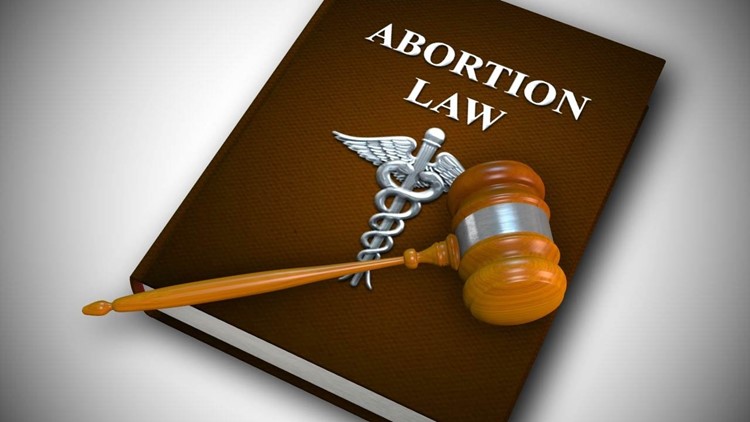LONDON — Karen, a law student from a small town in rural Ireland, traveled for hours to get to London to have a secret abortion. The procedure is illegal in her own country, so she lied to her family and friends — everyone apart from her boyfriend and the American who arranged her trip to Britain, Mara Clarke.
The 8th amendment to the Irish constitution, passed in 1983, formally equates the “right to life of the unborn” fetus to the “right to life of the mother.” While terminating a pregnancy on Irish soil is against the law, barring a couple of exceptions, Irish women are permitted to travel abroad to terminate their pregnancies, and recent data indicates 3,265 women made journeys across the Irish sea to Britain in 2016.


Travel between the Republic of Ireland and the U.K. can be quick and relatively inexpensive — a budget flight from Dublin to London can be had for about $50 dollars. That cost, however, plus the cost of the procedure (usually between $600 and $2,000), as well as extra items like travel to Dublin from other parts of Ireland, can be prohibitively expensive for some women.
That is why Clarke, originally from Illinois, runs what she says is the only organization in the United Kingdom dedicated to providing financial and logistical assistance to Irish women who wish to travel to get an abortion.
From Illinois to England
Born in Le Grange, Illinois, Clarke moved to New York in the early 00’s, where she learned that women from around the country were traveling to secure second trimester abortions. This begged the question: what happened to those women who wanted to terminate their pregnancies but couldn’t pay to go to a place where the procedure was accessible?
“For me, that was just the moment I thought, wait a minute, abortion is legal but not everybody can get one, and how is that fair?” Clarke says.
In New York, Clarke started working with an organization that provided free homestays for women traveling to the city while they underwent what, at the time, was a two-day outpatient procedure. When she moved to England, she looked for similar programs in the U.K. for Irish women, but she couldn’t find any. So in 2009 Clarke founded the London-based Abortion Support Network.
In its first full year of operation, she says the Network heard from 89 people. In 2017, it got 1,009 requests for assistance.
Karen’s journey
Karen, whose name has been changed to protect her privacy, found out she was pregnant while studying for her final law exams.
“I just felt like my whole life had been taken away from me, and everything I had worked for had just gone, just like that,” she says.
A student with aging parents and no income, she didn’t want to become a parent. Feeling unable to speak to her friends or family, she turned to the internet, where she found the Abortion Support Network and arranged a phone call with Clarke. She drove to an isolated parking lot to have the conversation.
“I just cried down the phone,” she recalls. “They asked me if I was financially in any way able to travel, because I knew I had to get an abortion, I just didn’t have the money to do it. I didn’t have the resources. I didn’t have a clue how to go about organizing it.”
With financial and logistical help, Karen traveled to London and terminated her pregnancy.
“I was just so devastated that in my time of need I couldn’t rely on my own country, on my own family, on my own friends to be there for me,” she says. “As a law student, as someone who believed in the justice system in this country, it’s a very bitter pill to swallow.”
Changing times?
Niamh Ui Bhraian, an Irish anti-abortion activist, says that a solution to situations like Karen’s is not to make abortions more accessible, but to bolster support for mothers at home.
“Most women that I know who have traveled for an abortion … are doing this … very often out of fear and panic,” Ui Bhraian tells CBS News.
“They’re afraid of their partner, afraid of their parents. They’re afraid they are going to lose their job… And to me that’s not about choice. It’s not giving women the support that they need.”


But for others, the answer is to reform Ireland’s strict laws so that women don’t have to travel to have abortions.
Calls for change grew louder in 2012 after the death of dentist Savita Halappanavar. At 17 weeks pregnant, Halappanavar began to miscarry and was hospitalized. As her condition worsened, she requested — but was denied — an abortion, because the continued presence of a fetal heartbeat made termination illegal. Halappanavar eventually died from septic shock.
Protests broke out in Dublin calling for a referendum on the repeal of the 8th amendment, and in 2016, the government convened a group of individuals from around the nation to assess a number of political questions, including abortion rights. Their report, which was delivered to parliament, recommended that the law be changed to allow unrestricted access to termination in early pregnancy. At the beginning of 2018, the government committed to holding a referendum before the end of May.
Ireland’s upcoming vote could mean the end of trips like Karen’s, but Clarke says she will continue running the Abortion Support Network until all Irish women are able to have abortions carried out legally at home.
“Abortion Support Network lives to be made obsolete,” Clarke tells CBS News, “but we will continue to help anyone who contacts us for as long as we can.”



